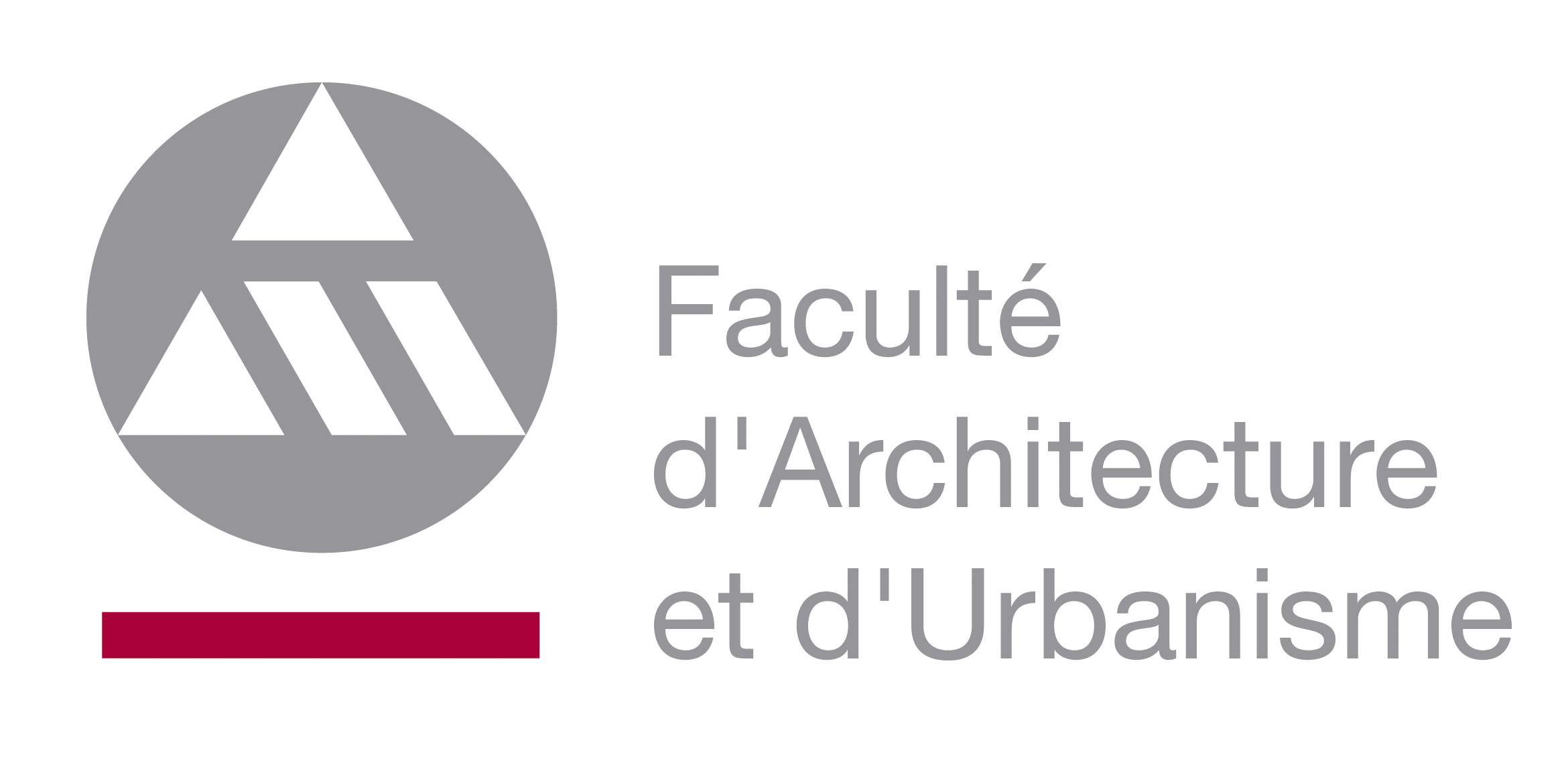 | Study programme 2021-2022 | Français | |
 | Preparatory Training for Working in Schools | ||
Programme component of Certificate of Teaching for Upper Secondary Education - Architecture and Urban Planning à la Faculty of Architecture and Urban Planning |
| Code | Type | Head of UE | Department’s contact details | Teacher(s) |
|---|---|---|---|---|
| UA-A1-ARCHIT-011-M | Compulsory UE | DUROISIN Natacha |
|
| Language of instruction | Language of assessment | HT(*) | HTPE(*) | HTPS(*) | HR(*) | HD(*) | Credits | Weighting | Term |
|---|---|---|---|---|---|---|---|---|---|
| Français | 0 | 0 | 10 | 0 | 0 | 1 | 1.00 | Full academic year |
| AA Code | Teaching Activity (AA) | HT(*) | HTPE(*) | HTPS(*) | HR(*) | HD(*) | Term | Weighting |
|---|---|---|---|---|---|---|---|---|
| P-SEMF-194 | Preparatory Training for Working in Schools | 0 | 0 | 10 | 0 | 0 | A | ?% |
| Programme component |
|---|
Objectives of Programme's Learning Outcomes
- Master legal documents so as to practise the profession properly
- Develop relational skills related to the requirements of the profession
- Measure the ethical issues regarding everyday practice
Learning Outcomes of UE
This programme will enable the students will be able to master the practical use of concepts relating to school life. In addition, students will be able to have a critical and documented understanding of organisational issues concerning schools outside class teaching/learning activities.
Content of UE
Organisational bodies at school: class council; participation board; school project, "CPMS"...
Prior Experience
To know the concepts worked during the course "Vie scolaire et gestion de groupes"
Type of Assessment for UE in Q1
- N/A
Q1 UE Assessment Comments
Not applicable (integrated assessment at the end of Q2)
Type of Assessment for UE in Q2
- Presentation and/or works
Q2 UE Assessment Comments
An essai written by group of 3 or 4 students from different faculties (submitted by Moodle and by post). The students will have to write, in groups of three or four, an essay on a subject related to the practical organisation of secondary schools (for example, the school project, interior school regulations, school rules, the functioning of the PMS centre, of parents' association...).
This work is composed of several stages
1) To research: what's the subject? What's its role?
2) To consider the subject to be analysed in each school (3 or 4 according to the number of members in each group).
3) To analyse each subject.
4) To compare the subjects in relation with their school.
5) To choose a specific slant for the analysis and to take into account the actors' point of view.
All the students will have to interview (record face-to-face or remotely, depending on the health situation and sanitary measures taken) actors (teacher, parent, student, director, psychologist from the PMS centre) in relation to the analysis slant (for example: what's the relationship between the PMS centre and the parents' association? / what's the link between the teachers and the school project? /...). One of the objective is to show the specificities of the establishments attended. The recorded interview will be transcribed by the student who will analyse the point of view of both actors.
Together, the students of one group will write down a report of 15 to 20 pages (+ transcriptions; + annexes) to be submitted before the first day of the session. This assessment is organised only once a year and is based on the team work only.
Type of Assessment for UE in Q3
- N/A
Q3 UE Assessment Comments
No assessment is organised at the second session if the written report was not submitted at the first session and subjected to improvement (schools are closed during summer holidays)
Type of Resit Assessment for UE in Q1 (BAB1)
- N/A
Q1 UE Resit Assessment Comments (BAB1)
Not applicable
Type of Teaching Activity/Activities
| AA | Type of Teaching Activity/Activities |
|---|---|
| P-SEMF-194 |
|
Mode of delivery
| AA | Mode of delivery |
|---|---|
| P-SEMF-194 |
|
Required Reading
| AA | |
|---|---|
| P-SEMF-194 |
Required Learning Resources/Tools
| AA | Required Learning Resources/Tools |
|---|---|
| P-SEMF-194 | Vitali, C. (2015). Nouveaux enjeux pour La vie scolaire. Hachette Éducation. Beckers, J. (2008). Enseignants en Communauté française de Belgique. Mieux comprendre le système, ses institutions et ses politiques éducatives pour mieux situer son action. Bruxelles: De Boeck, Coll. Pédagogies en développement. |
Recommended Reading
| AA | |
|---|---|
| P-SEMF-194 |
Recommended Learning Resources/Tools
| AA | Recommended Learning Resources/Tools |
|---|---|
| P-SEMF-194 | Not applicable |
Other Recommended Reading
| AA | Other Recommended Reading |
|---|---|
| P-SEMF-194 | Labrégère, R. (2010). Territoires éducatifs. Quand la vie scolaire prend l'initiative. L'Harmattan. Gasparini, R. (2013). Un contexte tendu autour des questions de discipline. Dans : , R. Gasparini, La discipline au collège: Une analyse sociologique de la note de vie scolaire(pp. 15-26). Paris cedex 14, France: Presses Universitaires de France. Gasparini, R. (2013). La discipline au collège: Une analyse sociologique de la note de vie scolaire. Paris cedex 14, France: Presses Universitaires de France. doi:10.3917/puf.gaspa.2013.01. Perrenoud, P. (2000). Métier d'élève et sens du travail scolaire. Issy-les-Moulineaux : ESF. Perrenoud, P. (2011). Quand l'école prétend préparer à la vie... Développer des compétences ou enseigner d'autres savoirs ? Issy-les-Moulineaux : ESF, 221 p. de Saint Martin, C. (2012). Nommer les violences scolaires. Des incivilités au harcèlement scolaire. La lettre de l'enfance et de l'adolescence, 87(1), 119-126. doi:10.3917/lett.087.0119. Guillotte, A. (1999). Violence et Éducation: Incidents, incivilités et autorité dans le contexte scolaire. Paris cedex 14, France: Presses Universitaires de France. doi:10.3917/puf.guill.1999.01. |
Grade Deferrals of AAs from one year to the next
| AA | Grade Deferrals of AAs from one year to the next |
|---|---|
| P-SEMF-194 | Unauthorized |